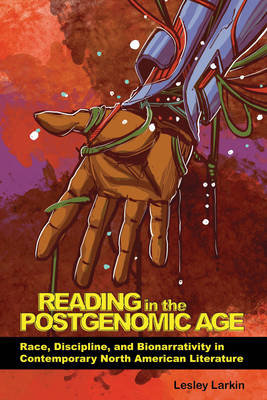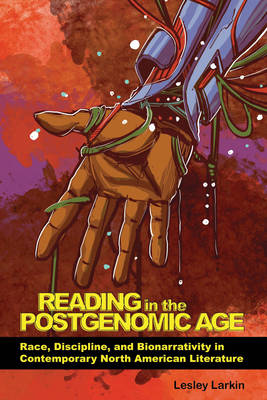
Bedankt voor het vertrouwen het afgelopen jaar! Om jou te bedanken bieden we GRATIS verzending (in België) aan op alles gedurende de hele maand januari.
- Afhalen na 1 uur in een winkel met voorraad
- In januari gratis thuislevering in België
- Ruim aanbod met 7 miljoen producten
Bedankt voor het vertrouwen het afgelopen jaar! Om jou te bedanken bieden we GRATIS verzending (in België) aan op alles gedurende de hele maand januari.
- Afhalen na 1 uur in een winkel met voorraad
- In januari gratis thuislevering in België
- Ruim aanbod met 7 miljoen producten
Zoeken
Reading in the Postgenomic Age
Race, Discipline, and Bionarrativity in Contemporary North American Literature
Lesley Larkin
€ 64,45
+ 128 punten
Uitvoering
Omschrijving
In Reading in the Postgenomic Age, Lesley Larkin analyzes how writers across literary genres have reckoned with the launch (in the early 1990s) and completion (in 2003) of the Human Genome Project and the ways it has fallen short of its promise to do away with spurious notions of race. Authors such as Margaret Atwood, Octavia Butler, Ruth Ozeki, Rebecca Skloot, Gerald Vizenor, and others demonstrate that genomics is a premier terrain upon which race is being reinscribed and reimagined in both scientific and mainstream contexts. Through construction of alternate genealogies, invention of hybrids, and citation of the textual metaphors replete within genomic discourse, these writers have illuminated the ethical, cultural, social, and political ramifications of genomic research, attuning readers to postgenomic discourses of race and power. At the same time, Larkin contends that literature's engagement with genomics goes beyond its initial critique to comment self-reflexively on the practices and value of literary studies. Ultimately, she argues that contemporary writers outline a new ethical matrix for reading race in the postgenomic era--and rethinks literary criticism within this new paradigm.
Specificaties
Betrokkenen
- Auteur(s):
- Uitgeverij:
Inhoud
- Aantal bladzijden:
- 266
- Taal:
- Engels
- Reeks:
Eigenschappen
- Productcode (EAN):
- 9780814259436
- Verschijningsdatum:
- 16/04/2025
- Uitvoering:
- Paperback
- Formaat:
- Trade paperback (VS)
- Afmetingen:
- 152 mm x 229 mm
- Gewicht:
- 358 g

Alleen bij Standaard Boekhandel
+ 128 punten op je klantenkaart van Standaard Boekhandel
Beoordelingen
We publiceren alleen reviews die voldoen aan de voorwaarden voor reviews. Bekijk onze voorwaarden voor reviews.









